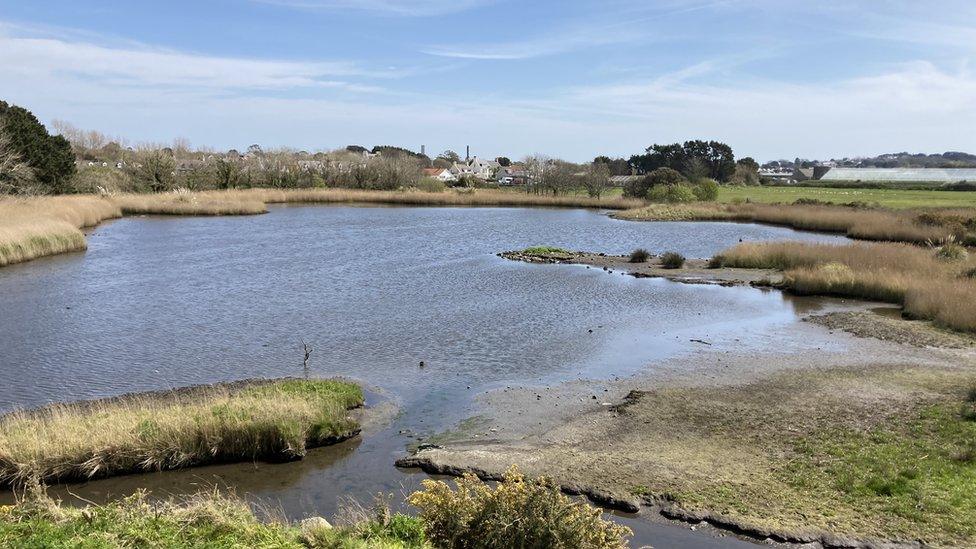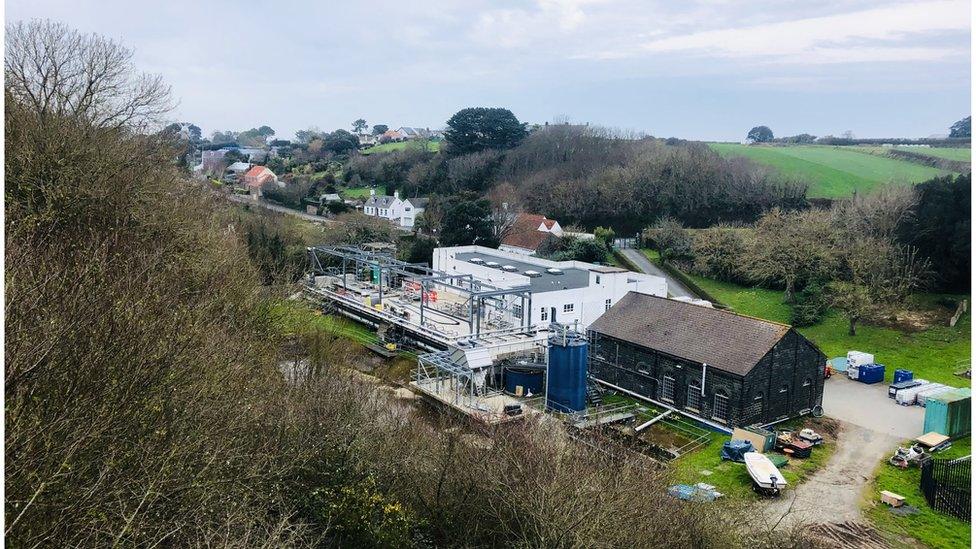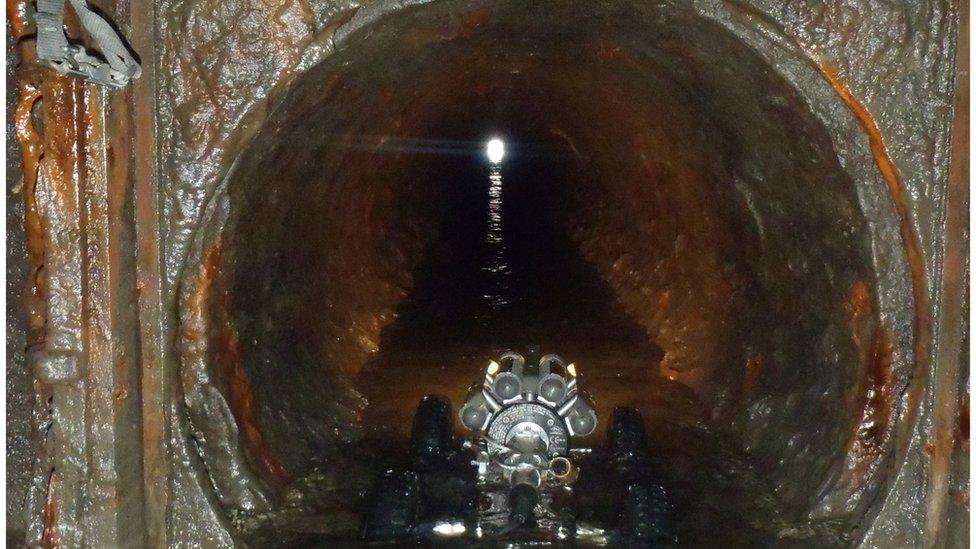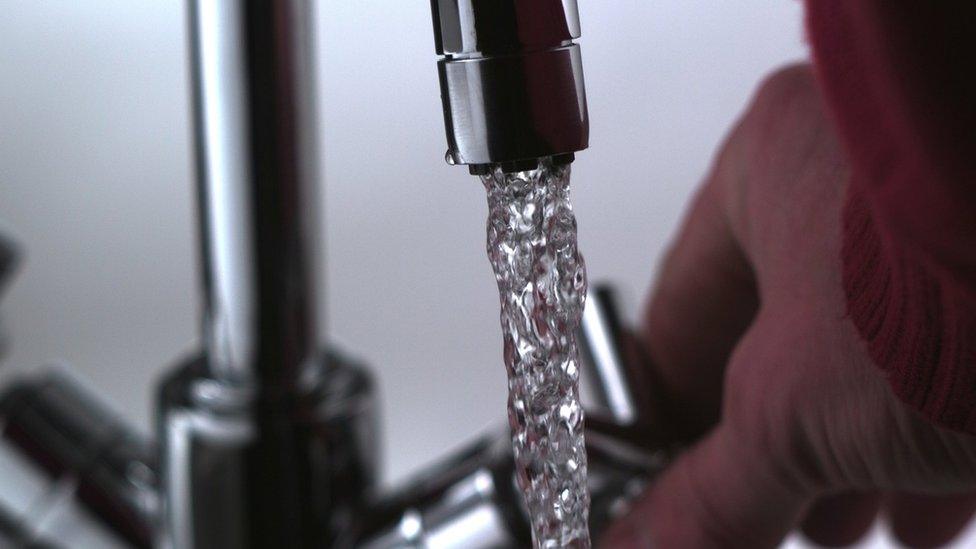Guernsey drinking water concerns over rising pesticide use
- Published

Increased pesticide levels have been found across the island and have led to the Vale Pond catchment area not being used for drinking water
An increase in the use of pesticides and weedkillers in Guernsey has limited what water can be collected and used for drinking water.
Guernsey Water has warned it could mean water use restrictions or price rises to fund new water treatment equipment.
It believes both commercial and domestic use are responsible.
The rise has led the government-owned firm to stop using the Vale Pond catchment area, which provided about 250 million litres of water a year.
"With our climate warming up and more severe droughts predicted for the future, the fact we are currently unable to collect what would equate to around 19 days' worth of water during drought for the island is significant and concerning," said water quality risk manager Margaret McGuinness.
Hose pipe bans
She said the problem did not just affect the Vale Pond catchment area - with sampling showing an estimated 65% increase in pesticide concentrations in streams across the island from 2019 to 2021.
"If these levels continue, we will be more likely to need water restrictions such as hose pipe bans during periods of drought," said Mrs McGuinness.
"We are asking Islanders with some urgency to reconsider their use of pesticides and weedkiller and look to alternatives for the benefit of the island's vital water resources and environment.
"Otherwise, unfortunately it could be a case of spray now, pay later."

Follow BBC Guernsey on Twitter, external and Facebook, external. Send your story ideas to channel.islands@bbc.co.uk, external.
Related topics
- Published14 March 2022

- Published8 March 2022

- Published9 November 2021

- Published26 October 2021